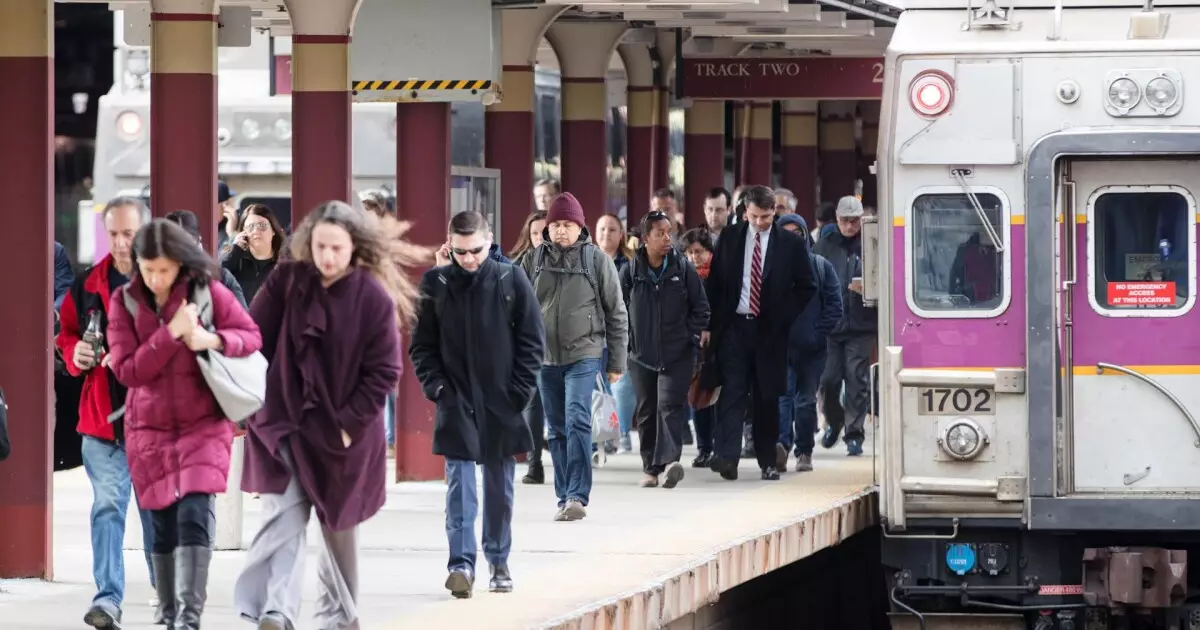Revitalizing Massachusetts: A Major Investment in Commuter Rail and Transportation Projects

In a significant move to enhance the state’s transportation infrastructure, Massachusetts is set to issue $490.7 million in municipal bonds aimed at funding essential improvements for its commuter rail system and various other transportation initiatives. This strategic financial decision reflects not just an immediate response to infrastructure needs but a broader vision for sustainable transportation that recognizes the importance of reliable public transit for economic growth and quality of life.
Scheduled to commence with pricing on Wednesday following a retail order period the previous day, the bond issuance comprises three distinct series. These include a revenue bond series totaling $150 million, designated for the enhancement of rail services, and a further $125 million classified as sustainability bonds, specifically aimed at funding the Massachusetts Bay Transportation Authority’s (MBTA) South Coast Rail Project. The remaining portion consists of $215.7 million in revenue refunding bonds, showcasing a multifaceted approach to financing that attempts to cover various aspects of the state’s transportation landscape.
The South Coast Rail Project is particularly significant, as it aims to restore commuter rail services between Boston and southeastern Massachusetts, areas that have historically lacked direct rail access to the city’s central hub. This initiative is expected to enhance connectivity for residents, provide a more reliable commuting option, and stimulate economic investment in the region.
Phillip Eng, General Manager and CEO of the MBTA, reiterated the agency’s dedication to advancing the South Coast Rail Project with utmost efficiency and safety standards. This commitment is essential—years of observed service reliability issues have led to growing criticism about the efficiency of the state’s public transportation system. Despite facing challenges due to historical funding deficiencies, the MBTA aims to revitalize operations, ensuring a service that the community can depend on.
Ongoing testing and quality control processes are being emphasized to ensure that new investments translate into tangible improvements for commuters. However, restoring faith in the system remains a formidable task, especially in light of past financial hurdles.
Current estimates place the South Coast Rail Project’s total cost at $990 million, with state financial officials projecting a mixture of funding mechanisms, including Commonwealth general obligation bonds and other municipal debt instruments. The initiative is a part of a broader agenda aimed at rejuvenating an antiquated public rail system that has faced persistent dilemmas, particularly in the aftermath of the COVID-19 pandemic, which led to reduced ridership levels.
These difficulties have not gone unnoticed. In response to an abrasive budget environment and increasing public concern, Massachusetts Governor Maura Healey launched a transportation funding task force. The objective is to construct a long-term financing plan that encompasses various considerations, including operational efficacy, sustainability, and addressing the financial challenges that have plagued the MBTA.
The financial context of the initiative is critical as the MBTA anticipates a daunting budget deficit that advocates describe as “existential.” Projections indicate a potential shortfall nearing $900 million by fiscal year 2029, prompting urgent attention to the state’s fiscal strategies. The issuance has received favorable ratings—AAA from S&P Global Ratings and Aa1 from Moody’s Ratings—indicating investor confidence in Massachusetts’ economic stability and fiscal governance, critical for facilitating this bond transaction.
BofA Securities, acting as the lead manager, alongside municipal advisors from Omnicap and legal counsel from Locke Lord, highlight the collaborative effort required to navigate the complex landscape of municipal finance for these extensive projects.
The planned bond sale represents a pivotal opportunity for Massachusetts to redefine its transportation infrastructure and tackle the longstanding challenges faced by its commuter rail system. As the state embarks on this journey toward revitalization, the focus on efficiency, accountability, and sustainability could herald a new era for public transportation, promising hope for both current and future generations of commuters. The road ahead will, however, require continuous dialogue, innovative thinking, and a commitment to overcoming the financial obstacles that have hampered progress thus far.





